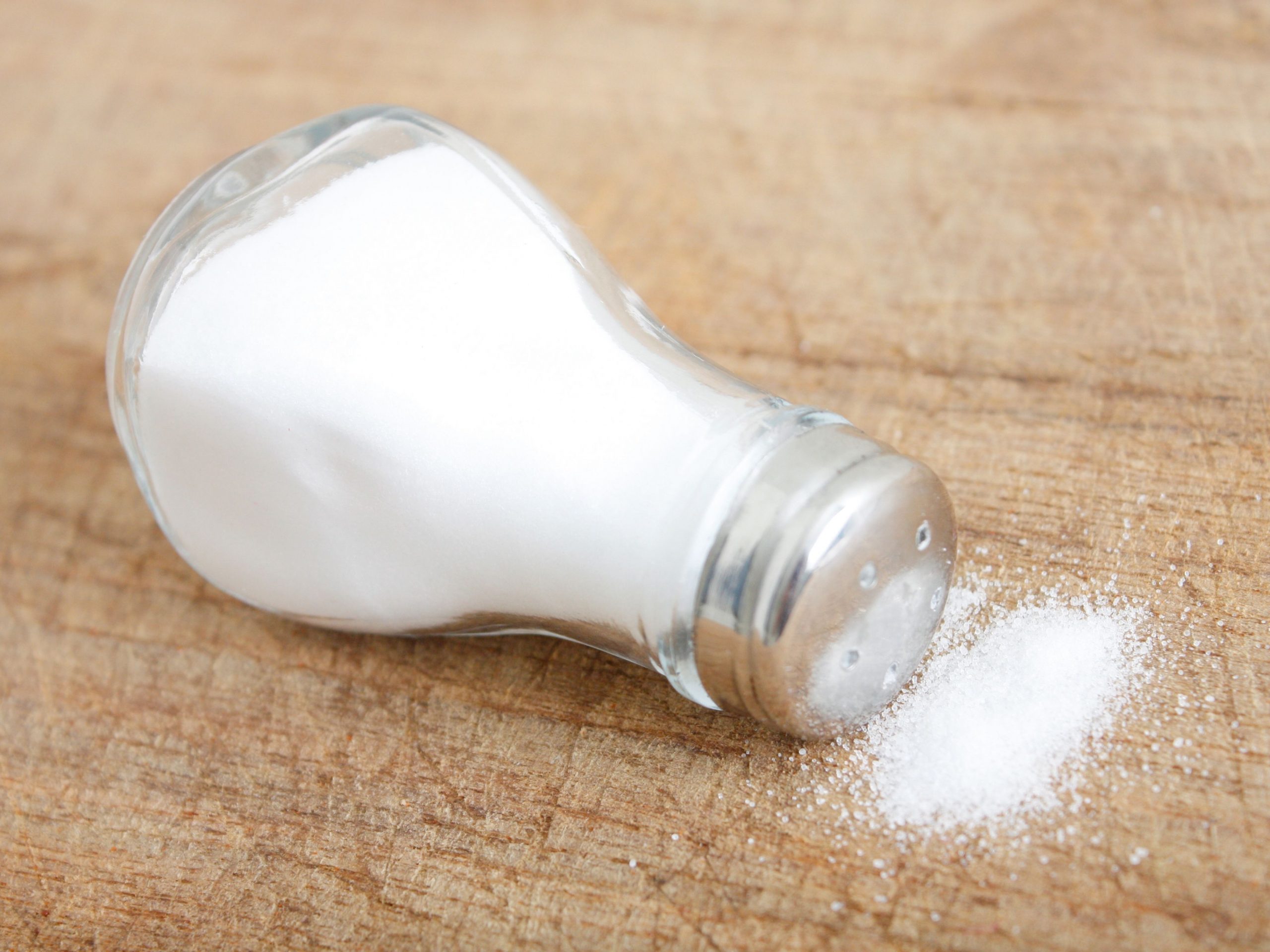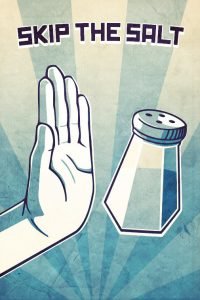A closer look at salt
The vast majority of us should eat less salt. We will go into more detail throughout this blog. However, before we start, let’s get one thing straight. We don’t wish to demonise salt completely. After all, it is not all bad.
But as the recent Salt Awareness Week helped to remind us, it is becoming clear that excess salt is a serious problem.
So, what are the benefits? What constitutes too much salt? What problems can excess salt cause? And how can we all cut down?
Let’s take a closer look.
Eat less salt – but don’t try and eliminate it altogether
Before we go on to warn against the pitfalls of consuming too much salt, the benefits of moderate consumption must be emphasised.
One of the key roles of salt is to help you stay hydrated. In fact, a mix of potassium and sodium (which is obviously found in salt) is necessary, in conjunction with fluid. Potassium is found in plentiful supply in bananas. That’s why you will see tennis players drink electrolytes and eat bananas in hot conditions. It helps prevent dehydration and avoid cramps.
Whilst excess salt can disturb sleep, a little bit of salt can aid sleep. Interestingly, a little salt mixed with honey can help to bolster serotonin. This is a positive hormone for reducing stress, and that’s why it can help calm you down at night.
In addition, small quantities of salt can be good for vascular health and can aid the nervous system.
But the truth is, it’s very difficult to eat too little salt since there are so many everyday foods containing it.
Salt – How much is too much?
The World Health Organisation recommends that adults consume less than 5 g (just under a teaspoon) of salt per day. Take note though, that recommendation is for most of the normal population including those with or without high blood pressure. But the recommendation may not apply to some people. For example, those undergoing treatment or with particular illnesses that lower sodium levels might need tailored quantities.
However, globally, most people consume twice the recommended amount (on average about 9-12 grams).
The big concern with salt is the sodium in it. High levels of sodium are contraindicated to good health.
For once, the UK compares favourably with the rest of the World. We have cut our consumption to about 7-8 grams a day, on average, but this is still too high.
What problems does excess sodium cause?
The single biggest concern with excess sodium is the impact on the heart. Too much salt in your diet can lead to elevated blood pressure. Over the longer term, too much salt can increase your risk of heart disease and strokes.
It can also lead you to retain too much water in your body. this can put added demands on your heart, arteries, kidneys and brain.
Cutting down on salt
According to the World Health Organisation, ‘in many countries, about 80% of salt in the diet comes from processed foods.’
The quickest way to reduce your salt and sodium intake is by reducing or eliminating your consumption of processed foods. Yet again, it is a reminder that natural and whole foods are far more beneficial for your health.
Thankfully, many foods display information about the salt content on the front of the packaging. Try and get into the habit of monitoring which of your foods are high in salt.
Final Word …
As so often, this article is meant as a quick jolt to get you thinking about the balance of your diet. To help you properly regulate the levels of salt and sodium in your diet, it is best to seek out professional advice.
If you need a consultation with a professional nutritionist or have any questions about our treatments, please contact us. You can find us in Mill Hill Broadway and Islington. If you like this blog, please share!
We are always happy to help!




